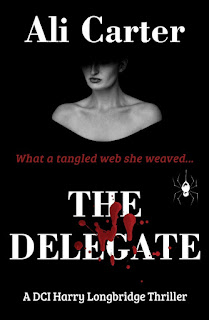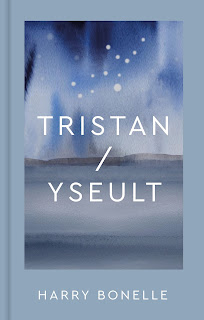So What Does It All Mean by SS O' Connor
So What Does It All Mean
by SS O' Connor
So What Does It All Mean by SS O 'Connor was published in May 2023. My thanks to the author and publisher for sending me a copy to review and to Literally PR for inviting me to take part on the tour.
Synopsis
The Secrets of Life series is written for everyone who, frankly, needs a spot of cheering up, and will provide conversation starters for years after reading! O’Connor’s easy-going, conversational style brings an outsider’s questioning eye to the great forces behind life.
The final in the four-part series shows what the theories, research and science all add up to. It examines the evidence that illustrates how wrong most people in thinking the world is descending into darkness and chaos, and shows instead that it’s actually improving at an astonishing rate. This explains, the author says, why in spite of the constant challenges our world faces, the human race is actually improving by the day, rather than becoming worse.
Book Four points out that many people say that humans are the ultimate triumph for the selfish gene, yet we’ve now developed to the point where we can choose to overrule so many of its instructions.
As the facts about the world’s population, its life expectancies, birth rates, poverty, food security, violence, natural disasters, energy, climate and all the other major indicators are laid out in So What Does It All Mean?, it becomes ever clearer that the results of our evolution should give us reasons for optimism, not despair.
The Secrets of Life series concludes by showing us why we are often wrong in our view of each other, why we’re becoming ever happier and more moral, and why we’re so frequently mistaken in our views about the future.
Yes, it concludes, life does have a meaning, it does have an arc of evolution, non-zero cooperation is what makes things win… and that includes us humans.
Extract
Chapter 18
Altruism? Don’t be ridiculous - we all know that’s a uniquely human quality. Living things are programmed by their genes to survive and reproduce, so why would anything act in a way that wasn’t in its self-interests? Why would something ever sacrifice itself for others?
In the late summer of 2018, the world's press descended on one of those rare good news stories they occasionally find to cheer up the usual gloom. What made this one such a ‘human interest’ certainty was that it managed to combine the public’s admiration for selfless courage with the ‘wow’ element of a bizarre coincidence - and then to have it all wrapped up in a satisfyingly heart-warming ending.
It was about an elderly man called Xu Weifang who’d been sitting at home in Zutang, eastern China when he heard a child shrieking for help. He rushed outside to see a seven-year-old boy thrashing around in the river that ran past his house. Without a second’s thought for his own safety - and in spite of being eighty years old and crippled with arthritis - he threw himself in the water and managed to pull the now unconscious child to safety.
That evening he dropped by the local hospital to see how the little fellow was doing. His parents were at the bedside and as they covered Xu with their grateful tears, the old man realised with a shock that he’d met the father before. Thirty years before, in fact, when he’d rescued him from drowning in exactly the same way that he’d saved his son - and from exactly the same river.
Xu was interviewed about it later and with admirable humility said he was pleased to have helped, but admitted that he might not be able to do so again in another thirty years.
Sadly, selfless actions like this don't always have the kind of outcome they deserve.
Not a month before Xu’s bravery, and 10,000 kilometres away across the Pacific in California, a heroic young man named Victor Mozqueda hadn’t stopped to think of his own safety when he’d jumped into the fast-flowing Kaweah River in the Sequoia National Park to save a small child called Vincent - even though he couldn’t swim.
Although he was knocked down several times, a witness later said that Mozqueda ‘never let go of him, even when they went down under the currents. The last effort he did was to throw Vincent out… so his father could grab him.’ Although a number of fishermen later tried to save Mozqueda, they couldn’t find him in the swirling waters, and he was eventually swept away to his death.
What can we do but swell with collective pride at such extraordinary acts? How much higher, we inevitably feel, do these examples of brave and selfless people place us humans above the rest of the world's organisms. How superior we must be, is the only conclusion, when we compare ourselves to the scrabbling conflicts of the natural world, and to the awful ruthlessness of lower life forms. And how different we are from every other organism, driven by their hardwired compulsions to maximise reproductive success… and never mind anything else. But surely altruistic actions are solely the preserve of our higher consciousness and our unique self-awareness?
Hmm, maybe not. Perhaps we’re being a little too quick to pat old Homo sapiens on the back?
Darwin, himself, cast a cool, scientist’s eye on such counter-intuitive behaviour and realised that it was probably grafted onto a paradox. The problem, as he wrote in The Descent of Man, his follow-up book to the Origin, was that: ‘He who was ready to sacrifice his life… would often leave no offspring to inherit his noble nature.’
Where would we be, was the implication, if everyone went around being so wonderful, chucking our lives away and taking our altruistic DNA out of the gene pool. Wouldn’t that be the quickest way to let the selfish types win?
Of course he must have been right. Cooperation in general poses deep problems for the traditional view of natural selection, but self-sacrifice is particularly baffling because it leads to the certain loss of exactly those ‘giving’ genes.
Yet as Darwin could see only too well - and almost certainly wished he couldn’t - that altruistic acts were everywhere in Nature, endlessly cocking a snook at his theories.
Why, for instance, are some insects sterile, yet they’d spend their whole lives working for the good of their colony? Wouldn’t honey bees that protect their hive sacrifice themselves when they stung an intruder, even though this would kill them? Don’t some bats willingly regurgitate their food to help another that’s going hungry?
And wouldn’t animals that instinctively cry out a warning to others serve a vital function - yet doing so attracts the predator’s attention onto themselves?
These kinds of acts are fascinating because they all seem to go against the rules. They do nothing to help things resist the never-ending pressure of the 2nd Law, and they certainly don’t ease the struggle for existence. Quite the opposite it would seem. By putting the lives of others ahead of their own, organisms that are making a sacrifice must be paying a terrible price for their altruistic behaviour. Surely this is a deep mystery in the context of behavioural decisions?
Darwin must have seen that we humans are also displaying the same kind of incomprehensible behaviour. Everywhere one looks in human society, there are examples of us admiring the very opposite of looking out for our survival and our genetic potential.
What's going on? How can all this be happening when success in life is an evolutionary process that should only reward hard-headed competition? Yet humans view selfishness at the root cause of all vice, all crime, and all sin. Even evil is an exaggerated, appalling form of selfishness.
So what could make them decide not to pass their genes on?
My thoughts
This has been an absolutely fascinating and easy to read series of four books that make you think about life and , literally " What it All Means"
Questions that are posed, and answered within this final book get you to look at life and what is happening around us from different angles and also not to just assume , or take things as we find them for granted. There are reasons why we react as we do. There are opportunities to change that we either take , or ignore. This set of books gets you to think about what we are seeing and experiencing and look at whether , and how we can change. For me this is a set of books that will stay on my bookshelves so that I can dip in and out of them and think about what I am reading at periodic intervals and also just to reassess my thoughts as to what is happening , and why within society.
Read the following questions below that are raised and answered within the book and ask yourself what the answers are.
What are the problems that arise from our free will?
Why are we capable of so much selfishness and cynicism - and yet also such sympathy, empathy, compassion, and sacrifice?
How have we come to realise that self-interest is quite different from selfishness?
Why have we become so driven by the need for fairness and trust in our societies - and how can less control over a society lead to people behaving better?
What’s the problem that life is solving?
Are we becoming happier?
Is violence reducing or increasing?
About the Author
SS O’Connor spent 20+ years as an advertising executive before becoming a serial entrepreneur, assembler of private equity projects, investor and corporate strategist. He has been chairman / director of numerous public and private companies. His acclaimed novel, The Prisoner’s Dilemma, published in 2013. He lives in London and Somerset.







Comments
Post a Comment